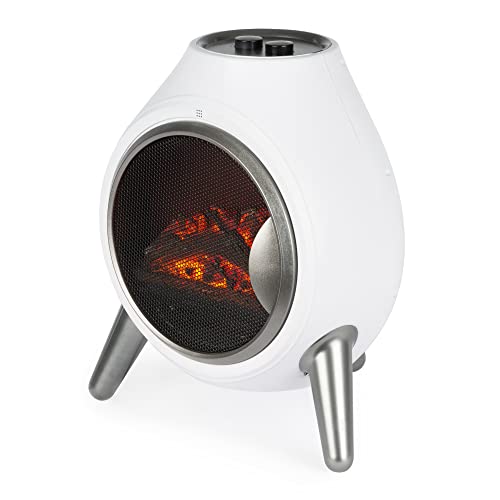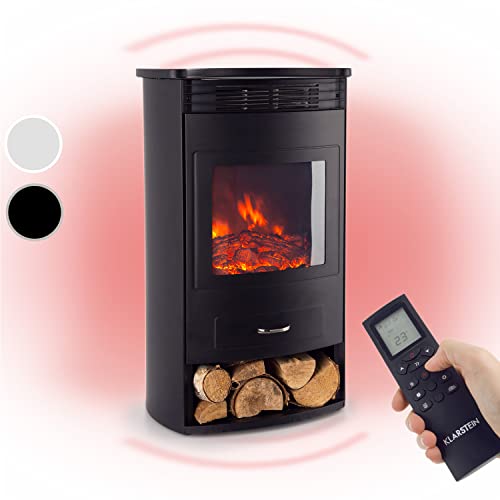20 Myths About Bioethanol Fireplace: Debunked
페이지 정보

본문
 The Benefits of an Ethanol Fireplace
The Benefits of an Ethanol FireplaceEthanol fireplaces are an excellent alternative to gas or wood fires since they don't require chimneys or flues. They also don't generate any smoke or ash, and they can be easily moved from one home to another.
Use bio-ethanol only on the burners specifically designed to burn the fuel. Other liquid fuels and gels may void your burner's warranty.
Cost
The price of a fireplace made of bioethanol is contingent on the design and style you select. There are models ranging priced from a few hundred bucks to a few thousand dollars, but they are usually less expensive than a wood or gas fireplace. Some models are freestanding while others can be attached to a fireplace, or recessed into a wall. Ethanol fires are also more eco friendly than their wood-burning counterparts.
Bio ethanol fires are very popular because they offer a natural, beautiful flame without any smoke or soot. They can be used in nearly any room, and they are easy to maintain. It is recommended to only utilize bio-ethanol fuels specifically made for these fireplaces. Other types may cause damage to the burner and increase the risk of fire. It is also recommended to avoid storing flammable substances near the bio ethanol flame.
Ethanol fireplaces are fantastic to heat rooms, but they shouldn't be used as your primary source of heat. They are more efficient than wood-burning stoves, and they can generate a substantial amount of heat - around 2kW in average. This will not be enough to warm an entire house, but it can certainly warm the smaller space.
In addition to the cost of an ethanol fireplace you'll need to think about other expenses related to maintaining the unit. The fireplace should be stored in a secure area, out of the reach of pets and children. It is essential to follow the manufacturer's instructions for adding fuel, then putting out the flame and Electric Fires allowing the flame to cool.
A fireplace that is ethanol-based can be a great alternative to a wood-burning stove. This fire has the main benefit of not requiring the chimney. You can save money by not having to build and maintain a chimney. Furthermore, it is more secure to use than other types of fireplaces. However, it's a good idea to consult a professional before making the final decision. This will allow you to be certain that the marble fireplace will be set up safely and correctly.
Environmental impact
A ethanol fireplace is an environmentally friendly alternative to traditional Wood fireplace-burning fireplaces. Bioethanol fuel is made from plant waste such as corn, straw and maize. The biofuel liquid undergoes further distillation to let it efficiently and cleanly burn. This kind of fuel is believed to be renewable energy source that leaves no unpleasant odours or harmful emissions. It's also free of smoke and soot. This makes it a safer option for your home.
Ethanol fireplaces do not require venting and chimneys They can be placed in almost every room in your home. Most models come with remote control. A majority of them also have an integrated cooling system that prevents the fuel from overheating. They can be used either as a primary heat source or as an additional heating system. They are also great for people who live apartments or in condos.
Bioethanol fireplaces produce very little odours. They are therefore a great choice for homes where people suffer from asthma or allergies. This type of fireplace is safe to be used in a child's or nursery room. It is important to remember, however, that these fireplaces must be kept a safe distance from any flammable items, such as furniture and curtains.
The ease of use of an ethanol fire is among its main advantages. It is easier to install than a traditional wood burning fireplace, and does not require complicated electrical or installation. The fuel that is liquid can be stored in a portable container so that it can be easily moved from one place to another. This lets you take pleasure in the warmth of a fireplace without having to face the hassle of chopping, stacking and cleaning up wood.
Another great benefit of a bioethanol fireplace is that it creates minimal pollution and is a great choice for those who care about the environment. These fireplaces also help you save energy and money.
Safety
A bioethanol fireplace is a secure alternative to an open fire. They are easy to operate, produce less smoke and burn cleaner than other alternatives. However, like all fireplaces and other appliances that produce fire, they can be dangerous if used incorrectly. These fireplaces wooden require particular attention and care, so it is essential to read the instructions carefully and follow them closely.
If you're using a fireplace made of bioethanol, be sure to place it in a place that is well-ventilated and away from any other materials that can ignite. Keep pets and children away from the fireplace. Don't try to move it while it's burning, as this can cause an accident.
Bioethanol fireplaces might not be as hazardous as wood fireplaces or gas fireplaces. However, there are some safety guidelines to follow in order to ensure that they are safe. Keep all flammable objects at least 1500mm away from the flame and don't touch it while the flame is burning. Also, it's important to never refill a fire using non-approved fuel.
The bio-ethanol fireplace's burning process is safe, so long as you follow the directions. The fuel is pumped through the vapour-accelerator, where it evaporates and is then ignited by a filament. This method of combustion ensures that the fuel is completely burned, thereby eliminating odour and harmful substances such as dioxins and furans.
It is important to adhere to the guidelines given by the manufacturer when installing or operating an ethanol fireplace. They should also be kept away from combustible material, such as newspapers and curtains. They should be kept at a away from other appliances in the home, and not used close to sleeping animals or children.
A bio ethanol fireplace has the main advantage that it doesn't emit harmful odours or fumes. This is a safe choice for households with pets or children. They are also easier to utilize than traditional fireplaces since they don't require a chimney and do no cause carbon monoxide poisoning. These stone fireplaces offer a variety of advantages, such as the ability to put them anywhere and move them around.
Installation
A bioethanol fireplace is a great option to add ambience and warmth to a room. They come in a variety of designs and can be put in in a number of ways. They can be wall-mounted freestanding, built-in or see-through. But, it is important to check the specific installation manual of a particular fireplace before installing it. This will allow you to avoid any problems when installing the fireplace and ensure that your fireplace is safe to use.
Installing a bioethanol fireplace is fairly simple. It involves installing the burner and then building frames to be inserted into the wall. The frame should be made with a material which is not fire-proof. This will prevent the fire from igniting the wall. This also helps prevent the flame spreading to other parts in the room. The frame should be attached to the wall with appropriate screws and dowels.
In contrast to other kinds of fireplaces, ethanol fires don't require a chimney or flue. This makes them a more economical option for homeowners. They can also be put in any space and easily moved. Additionally, they do not generate any harmful emissions.
When used correctly, a bioethanol fireplace is extremely safe. But as with all fires, they must be kept away from surfaces that are flammable and children. In addition the fuel should be kept in a safe place and the fire put out prior to fueling it again.
Ethanol fireplaces do not produce soot or ash They are also easy to clean. These fireplaces are an excellent choice for those worried about the impact on the environment that traditional wood-burning ones. Ethanol-fueled fireplaces are a great alternative to gas or electric fireplaces.
While bioethanol fireplaces are a wonderful addition to any home however, they shouldn't be used as a primary source of heat. They are designed to give extra warmth and create a cozy atmosphere, but they are not sufficient to heat an entire home. Employing a professional to install your bioethanol fireplace is the best way to go.

- 이전글The Unknown Benefits Of Wall Mount Fireplace 24.10.24
- 다음글Ten Best Pellet Stoves That Really Improve Your Life 24.10.24
댓글목록
등록된 댓글이 없습니다.